Help Athlete

How do high-tech training facilities contribute to athlete development and recovery ?
High-tech training facilities contribute to athlete development and recovery by providing advanced equipment, technologies, and personalized programs. These resources help improve performance, prevent injuries, and facilitate efficient recovery.
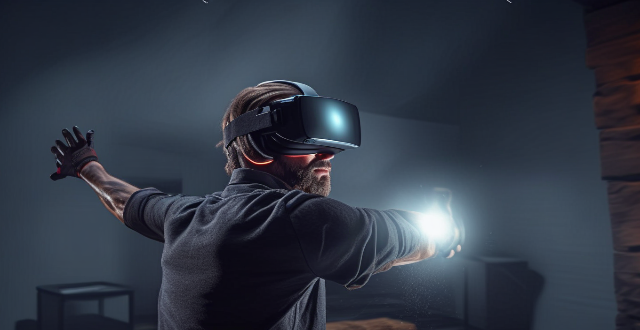
Can virtual reality training improve athlete skills ?
Virtual reality (VR) technology has been increasingly utilized in sports training, raising the question of whether it can improve athlete skills. The answer depends on several factors, including the type of sport and specific skills required. VR platforms offer a novel medium to develop cognitive skills such as concentration and alternating attention. They can be highly beneficial for sports requiring precision and accuracy, providing a controlled environment for repeated practice and immediate feedback. However, VR should not replace traditional physical training entirely but be used as a supplementary tool. Additionally, VR can help athletes mentally prepare for competition by simulating game scenarios and practicing decision-making skills under pressure. The effectiveness of VR training depends on various factors, and its evolution in sports training programs will be interesting to observe as technology advances.

Can sport monitoring technology help prevent injuries ?
Sport monitoring technology has become increasingly popular in recent years, with many athletes and coaches using it to improve performance and prevent injuries. This technology includes wearable devices such as fitness trackers, heart rate monitors, and GPS tracking systems, as well as more advanced technologies like motion capture systems and force plates. Sport monitoring technology works by collecting data on an athlete's movements, heart rate, and other physiological factors. This data is then analyzed to provide insights into the athlete's performance and identify areas where they may be at risk of injury. By tracking an athlete's movements and physiological factors, sport monitoring technology can identify potential injury risk factors early on, help coaches create personalized training plans for each athlete based on their individual needs and abilities, monitor recovery periods between sessions, and educate athletes and coaches about injury prevention strategies. Overall, there is evidence to suggest that sport monitoring technology can help prevent injuries in several ways. However, it is important to note that no technology can completely eliminate the risk of injury, and proper training, conditioning, and safety measures should always be prioritized.
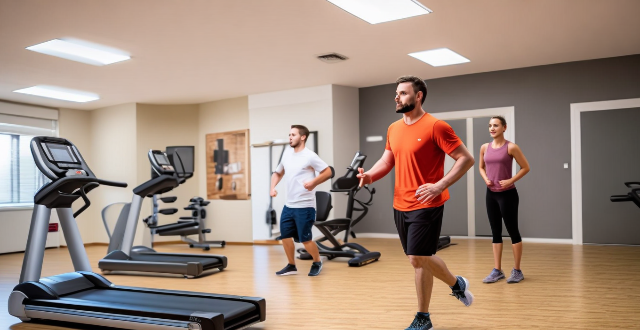
Can AI improve sports performance and athlete safety ?
Artificial Intelligence (AI) is transforming the sports industry by enhancing athletic performance and ensuring athlete safety through personalized gear design, optimized nutrition and training schedules, and injury prevention. AI's predictive capabilities help in preemptive measures against injuries, while wearable technology provides real-time data for monitoring an athlete's physical state. The future of AI in sports holds immense potential for real-time feedback, strategy adjustments, and fair play enforcement.

What is the role of biometric monitoring in athlete health and fitness ?
Biometric monitoring is a valuable tool for athletes to optimize their performance, recovery, and overall well-being. By collecting and analyzing data related to an individual's physical characteristics, such as heart rate, skin temperature, and body composition, athletes can gain insights into areas where they may need improvement or make adjustments to their training regimen. Biometric monitoring can also help athletes monitor their recovery from workouts and competitions, optimize their training regimens, prevent injuries, and enhance their overall well-being. Overall, biometric monitoring plays a crucial role in athlete health and fitness by providing valuable insights into performance, recovery, training regimens, injury prevention, and overall well-being.
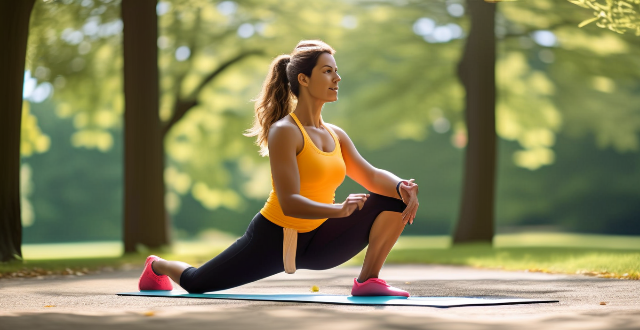
What is the best way to structure a training program for a beginner athlete ?
As an AI assistant, I can provide general guidelines and tips on how to structure a training program for a beginner athlete. Before starting any training program, it is important to set clear goals and objectives. Every training session should start with a warm-up and end with a cool-down period. Strength training should be a key component of any beginner athlete's training program. Cardiovascular training is essential for improving endurance, burning calories, and enhancing overall health. Flexibility and mobility are often overlooked but are crucial for preventing injury, improving performance, and maintaining good posture. Recovery and rest are equally important as training itself. By following these guidelines and seeking guidance from qualified coaches or trainers, beginner athletes can safely and effectively improve their fitness levels and achieve their desired outcomes.
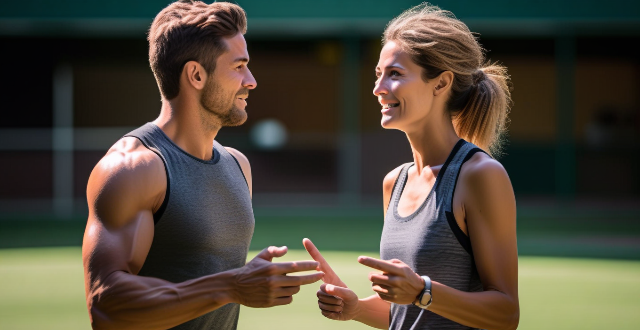
How do sports psychology techniques help with emotion regulation ?
This article explores the importance of emotion regulation in sports performance and how sports psychology techniques can help athletes regulate their emotions. The techniques discussed include self-talk, visualization, goal setting, breathing techniques, and mindfulness meditation. These techniques enable athletes to stay focused, confident, and motivated during competitions, leading to better performances. By incorporating these techniques into their training routines, athletes can learn to manage their emotions effectively and maintain optimal mental states for peak performance.

Can sports psychology help athletes deal with failure and loss more effectively ?
Sports psychology can help athletes deal with failure and loss by providing strategies for goal setting, visualization, self-talk, stress management, and coping mechanisms. These techniques enhance mental resilience and promote overall well-being, allowing athletes to perform at their best despite challenges.

How can sports psychology help athletes manage stress and pressure during competitions ?
Sports psychology helps athletes manage stress and pressure during competitions by providing techniques and strategies to improve mental toughness, confidence, and focus. These techniques include goal setting, visualization, breathing exercises, mindfulness and meditation practices, and coping strategies such as problem-solving and emotion regulation. By implementing these tools, athletes can improve their performance and enjoy their sport more fully.
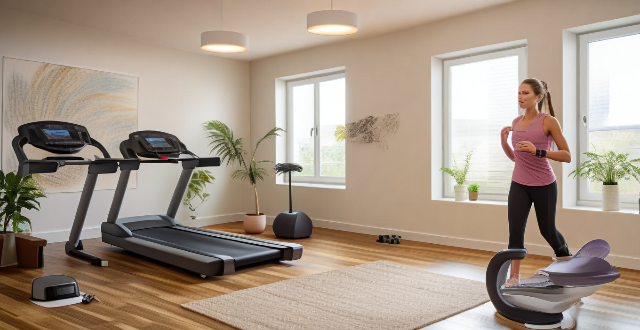
Can physical therapy help with sports injury recovery ?
Physical therapy is beneficial for sports injury recovery, addressPhysical therapy is beneficial for sports injury recovery, address restoration, injury prevention, and addressing pain management, function restoration, injury prevention, and supporting a safe return to activity. It involves assessment, diagnosis, manual therapy, range of motion exercises, strengthening exercises, stretching, balance training, functional training, gradual increase in activity, and education on injury prevention and home exercise programs.

Can studying sports biomechanics help prevent injuries in athletes ?
Sports biomechanics can help prevent injuries in athletes by identifying risk factors, optimizing movement patterns, and providing feedback and guidance. Examples include analyzing baseball pitchers' mechanics to reduce strain on their joints, gymnasts' movements to identify areas of stress, and runners' form to improve efficiency and reduce strain on their knees and ankles. By working with coaches and trainers who specialize in sports biomechanics, athletes can improve their technique and reduce their risk of injury over time.
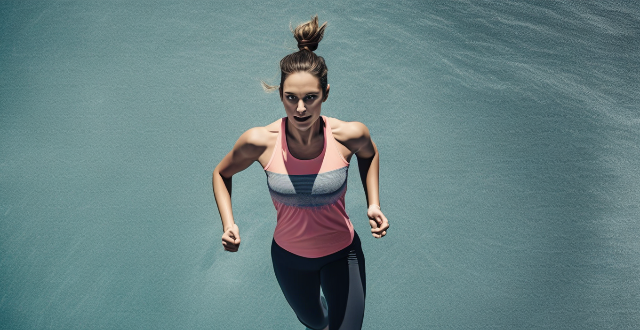
How does AI technology help with injury prevention in sports ?
AI technology is revolutionizing sports injury prevention by providing valuable insights into an athlete's physical condition, performance, and risk factors. Through data analysis, real-time monitoring, biomechanical analysis, recovery support, and injury surveillance, AI technology helps coaches, athletes, and medical professionals take proactive steps to prevent injuries and promote safer sports environments.

How can sports medicine help athletes recover from surgery or injury ?
**Sports Medicine: Aiding Athletes in Recovery from Surgery or Injury** The field of sports medicine plays a critical role in helping athletes recover from injuries and surgeries. It involves a multifaceted approach that includes pre-operative management, post-operative care, rehabilitation programs, and facilitating a safe return to sport. Professionals in this area assess the injury, prepare the athlete for surgery, manage pain, provide physical therapy, offer nutritional and psychological support, and create tailored rehabilitation programs focusing on functional training, strength building, flexibility, and endurance. The ultimate goal is to ensure the athlete's complete recovery and prevent future injuries.

How does sports psychology help in managing pre-game anxiety and nervousness ?
Pre-game anxiety and nervousness are common experiences for athletes, but sports psychology offers strategies to manage these emotions effectively. These include goal setting, relaxation techniques, cognitive restructuring, establishing routines, practicing mindfulness, and leveraging social support. By implementing these tools, athletes can enhance their mental resilience and perform at their best when it matters most.

How does sports psychology contribute to the prevention of burnout in athletes ?
Sports psychology plays a pivotal role in burnout prevention among athletes by focusing on mental resilience, self-awareness, life-sport balance, performance anxiety, team cohesion, nutrition and recovery education, and well-being monitoring. Techniques such as goal setting, resilience training, emotional intelligence, mindfulness, time management, social support, relaxation methods, and exposure therapy are employed to manage stress, improve performance, and maintain a healthy sport-life balance. These strategies not only help prevent burnout but also enhance overall athlete well-being and performance.

How do sports psychologists help athletes deal with performance anxiety ?
Sports psychologists use various techniques to help athletes manage performance anxiety, including assessment and goal setting, cognitive behavioral techniques, building mental toughness, establishing routines, fostering social support, and ongoing assessment. These strategies aim to enhance an athlete's mental resilience and enable them to perform optimally under pressure.

How does smart sportswear help in injury prevention ?
Smart sportswear is revolutionizing the way athletes and fitness enthusiasts approach their workouts by providing real-time feedback on their performance and body metrics. This technology not only enhances athletic performance but also plays a crucial role in injury prevention. Below are several ways smart sportswear contributes to reducing the risk of injuries: Monitoring biometric data, providing feedback in real-time, tracking progress over time, enhancing warm-up and cool-down routines, alerting on environmental factors, and promoting consistency and habit formation.
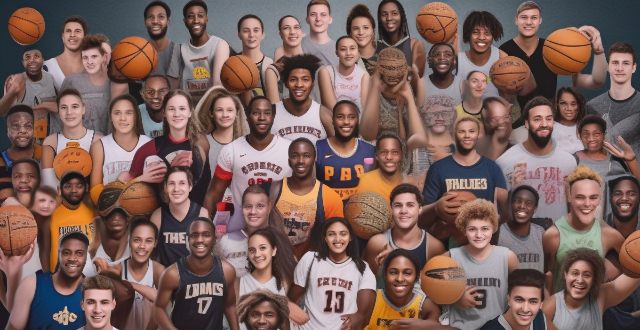
How do I become a professional athlete in basketball ?
To become a professional basketball player, start early, practice regularly, join a team or club, focus on academics and attend a good high school with a strong basketball program. Get recruited by a college program, excel in college, gain national exposure, hire an agent, and go through the draft process. Stay focused, maintain a positive attitude, and be willing to put in the work to achieve success.

What benefits can individual athletes gain from tracking and analyzing their performance data ?
Individual athletes can gain numerous benefits from tracking and analyzing their performance data, including improved performance, increased motivation, greater self-awareness, better injury prevention, and more effective recovery strategies. By monitoring their progress, identifying areas for improvement, and making data-driven decisions about their training and competition strategies, athletes can enhance their overall performance and achieve better results.
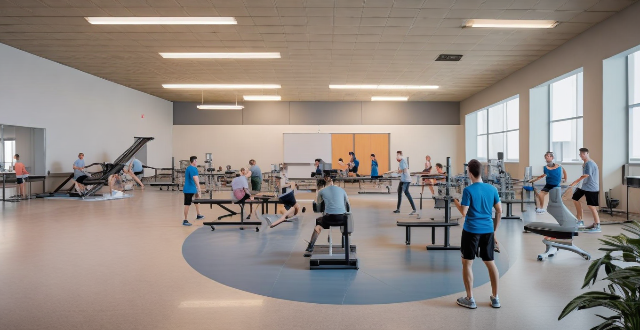
Can a sports rehabilitation center help me improve my overall fitness and performance ?
Sports rehabilitation centers offer customized programs, state-of-the-art equipment, professional staff, and mental health support to help athletes recover from injuries and improve their overall fitness and performance. By working with these centers, athletes can develop customized recovery plans, improve their performance, and learn proper techniques for exercising safely.

Can certain foods help reduce inflammation in athletes
Certain foods can help reduce inflammation in athletes. These include anti-inflammatory spices, fruits and vegetables, whole grains, healthy fats, and protein. It's also important to avoid processed foods, sugary drinks, and red meat. By eating a balanced diet full of healthy foods, athletes can reduce inflammation and improve their performance.

How can athletes manage pre-game nerves and anxiety ?
Pre-game nerves and anxiety are common for athletes but can be managed through various strategies, including mindfulness techniques, physical preparation, mental strategies, support systems, and practice. These methods help athletes perform at their best by transforming nervous energy into focus and drive for success.

What types of data do sports performance tracking systems collect ?
Sports performance tracking systems collect a variety of data types, including physiological, biomechanical, technical, tactical, and psychological information. This data can help athletes and coaches analyze performance, identify areas for improvement, and make informed decisions about training and competition strategies. Other information such as environmental conditions, equipment used, and nutrition intake may also be collected to provide a comprehensive picture of an athlete's performance.

How can technology help in designing and monitoring a sports training plan ?
Technology has revolutionized sports training, allowingTechnology has revolutionized sports training, allowing workout programs through wearable devices allowing for more personalized and efficient workout programs through wearable devices, data analytics, and virtual training environments. It aids in designing training plans by collecting performance data, tracking movement patterns, simulating game scenarios, and customizing regimens based on individual needs. Technology also enhances monitoring progress with real-time feedback, recovery management tools, and adaptive goal setting features. These advancements provide valuable insights that traditional methods cannot match, shaping the way athletes reach their peak performance.

How can technology help in managing a sports career ?
Technology plays a crucial role in managing a sports career. It can help athletes improve their performance, track their progress, and stay connected with their fans and sponsors. Here are some ways technology can assist in managing a sports career: 1. Performance Tracking: Wearable devices such as fitness trackers, smartwatches, and heart rate monitors can help athletes track their physical activity, sleep patterns, and overall health. Video analysis software allows coaches and athletes to review game footage, identify areas for improvement, and develop strategies for future competitions. 2. Training Optimization: Virtual Reality (VR) technology can simulate various environments and scenarios, allowing athletes to train in a controlled setting without the risk of injury. Machine learning algorithms can analyze an athlete's training data and provide personalized recommendations for improving performance and reducing the risk of injury. 3. Injury Prevention and Recovery: Biometric data such as heart rate variability, muscle oxygenation, and fatigue levels can help coaches and trainers monitor an athlete's recovery status and adjust their training accordingly. Technological advancements in rehabilitation, such as electrotherapy, ultrasound therapy, and robotic assistance, can aid in faster recovery from injuries. 4. Nutrition and Hydration: Smart water bottles can track an athlete's hydration levels throughout the day and remind them when it's time to drink water. Nutrition apps can help athletes plan their meals, track their calorie intake, and ensure they are getting the necessary nutrients for optimal performance. 5. Communication and Networking: Social media platforms allow athletes to connect with fans, share their experiences, and promote their personal brand. Sports management software can help athletes manage their schedules, communicate with coaches and teammates, and keep track of their finances and sponsorships. 6. Mental Health Support: Mindfulness apps can help athletes manage stress, improve focus, and enhance their mental well-being. Teletherapy services enable athletes to access mental health support remotely, ensuring they have the resources needed to maintain their mental health while on the road or competing abroad.
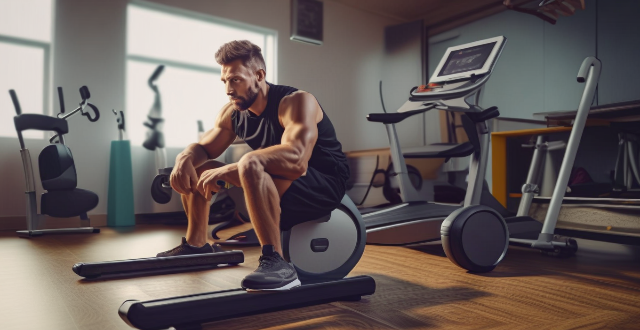
How does technology help in preventing and managing sports injuries ?
Technology plays a crucial role in preventing and managing sports injuries through wearable devices, advanced imaging techniques, rehabilitation technologies, and preventive measures such as biomechanical analysis and nutrition tracking. These tools help athletes maintain optimal health and minimize their risk of injuries.
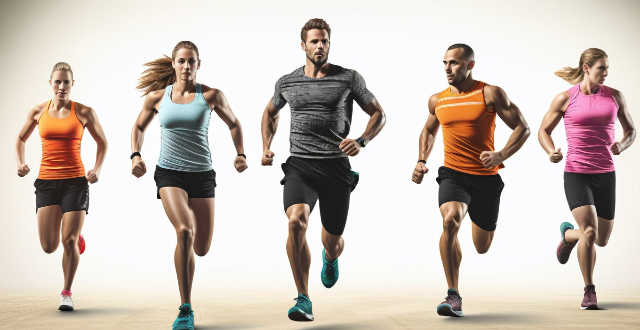
What are the most common metrics used in analyzing sports performance ?
Analyzing sports performance is crucial for athletes, coaches, and teams to improve their skills, strategies, and overall performance. There are several metrics used to evaluate different aspects of sports performance, including time-based metrics such as speed and pace; distance-based metrics such as distance covered and displacement; power-based metrics such as peak power and power endurance; technique-based metrics such as form analysis and biomechanical analysis; physiological metrics such as heart rate and VO2 max; and mental metrics such as mental toughness and motivation levels. These metrics can help athletes and coaches identify areas for improvement and develop effective training programs to enhance performance.
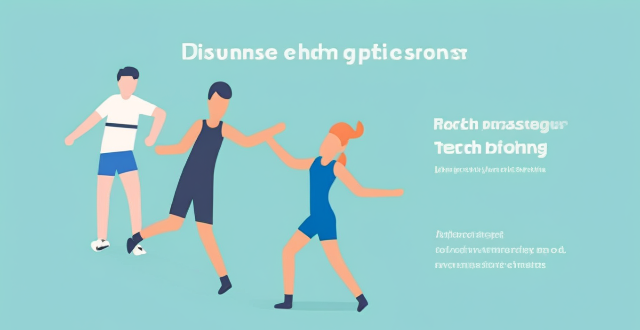
What techniques and strategies are commonly used in sport psychology counseling ?
The text discusses techniques and strategies in sport psychology counseling, which include goal setting, visualization and imagery, self-talk and affirmations, mindfulness and meditation, and breathing techniques. Goal setting helps athletes stay motivated and focused, while visualization and imagery build confidence and reduce anxiety. Self-talk and affirmations enhance self-confidence and motivation, while mindfulness and meditation improve mental clarity and resilience under pressure. Breathing techniques manage stress, anxiety, and tension. Incorporating these methods into training and competition preparation can help athletes achieve their full potential.

How does sports medicine help prevent injuries in sports ?
The text discusses how sports medicine helps in preventing injuries in sports by providing athletes with necessary knowledge, skills, and resources for maintaining their health and safety. It outlines key ways such as pre-participation physical examinations, proper warm-ups, strength training programs, correct technique, injury management, and education. These measures aim to identify risks, prepare the body for exercise, enhance fitness levels, promote safe practices, and manage injuries effectively. Overall, sports medicine plays a vital role in fostering a culture of safety and well-being within sports communities.
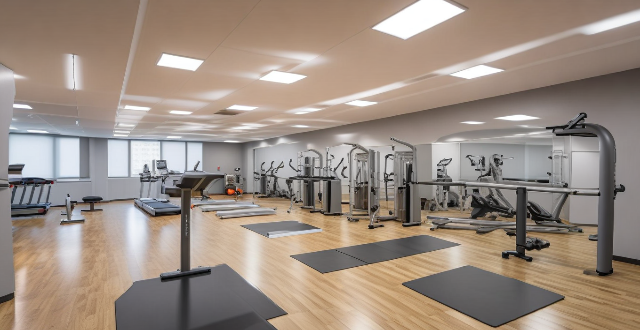
How do sports psychologists assist coaches in understanding and managing their athletes' mental health ?
Sports psychologists assist coaches in managing athletes' mental health by providing education, individual assessments, mental skills training, counseling, team building activities, crisis intervention, and feedback. This support helps coaches create a supportive environment for athletes to perform at their best mentally and physically.